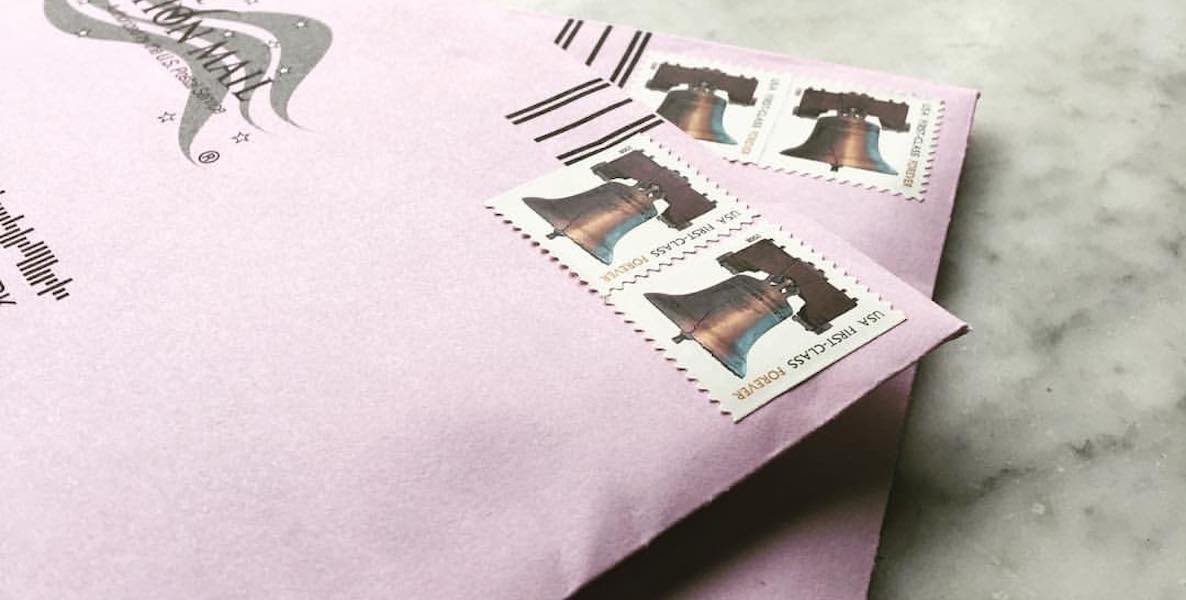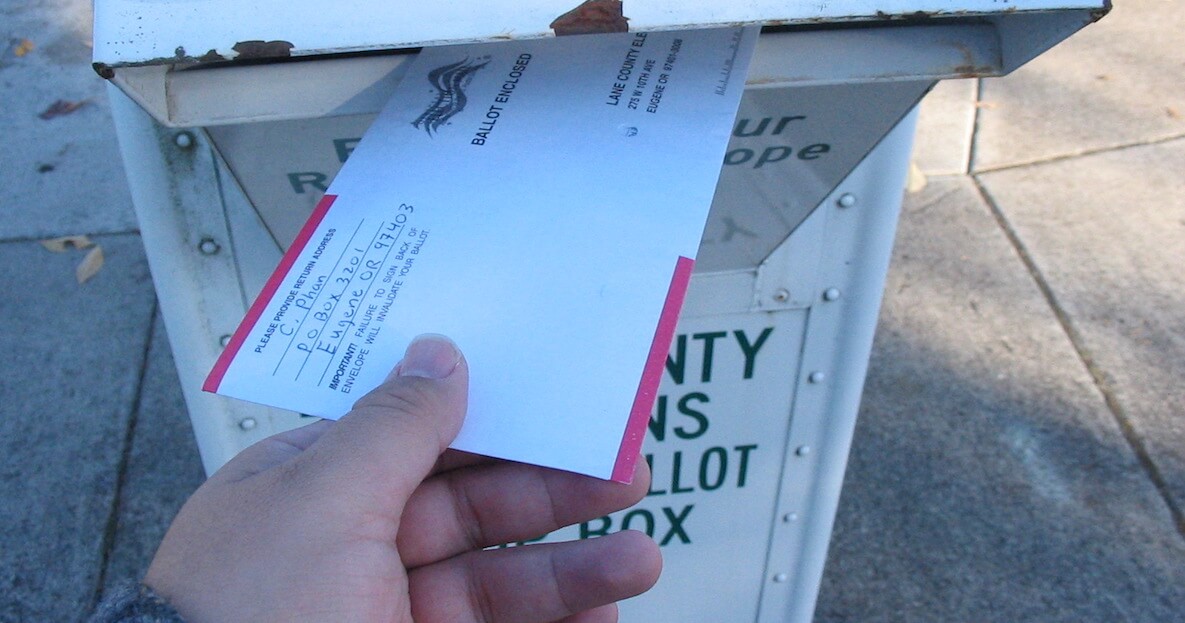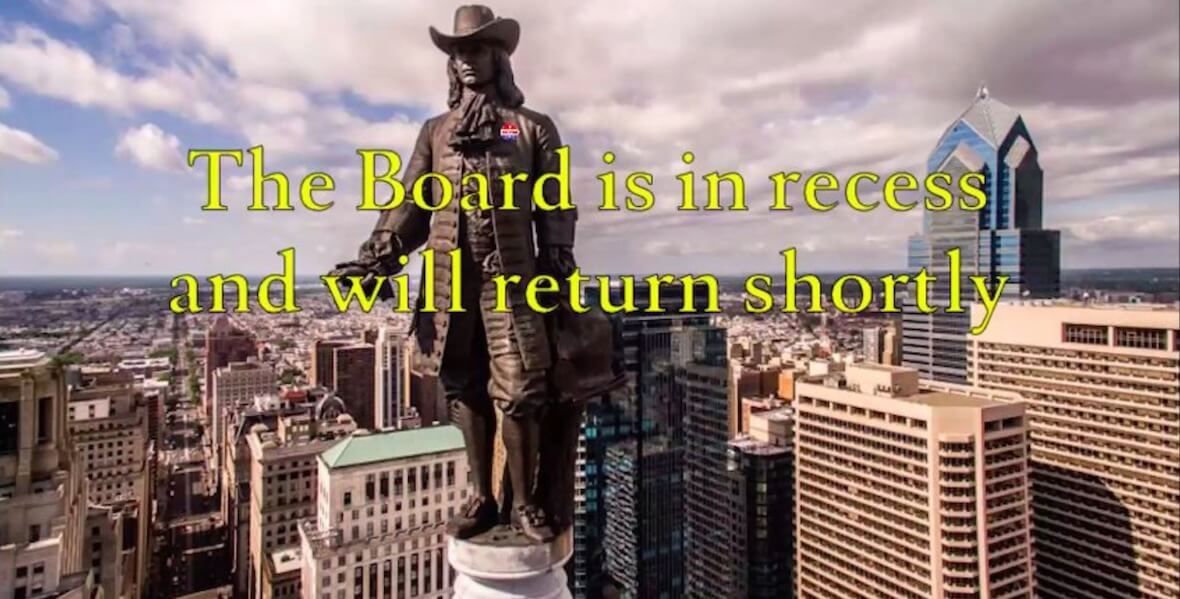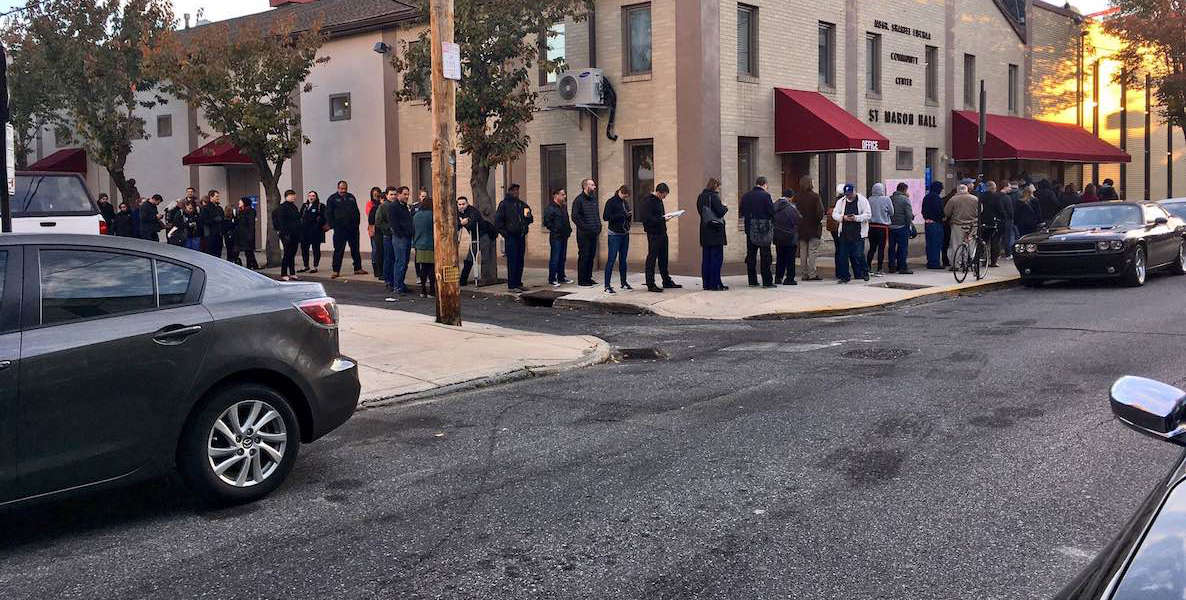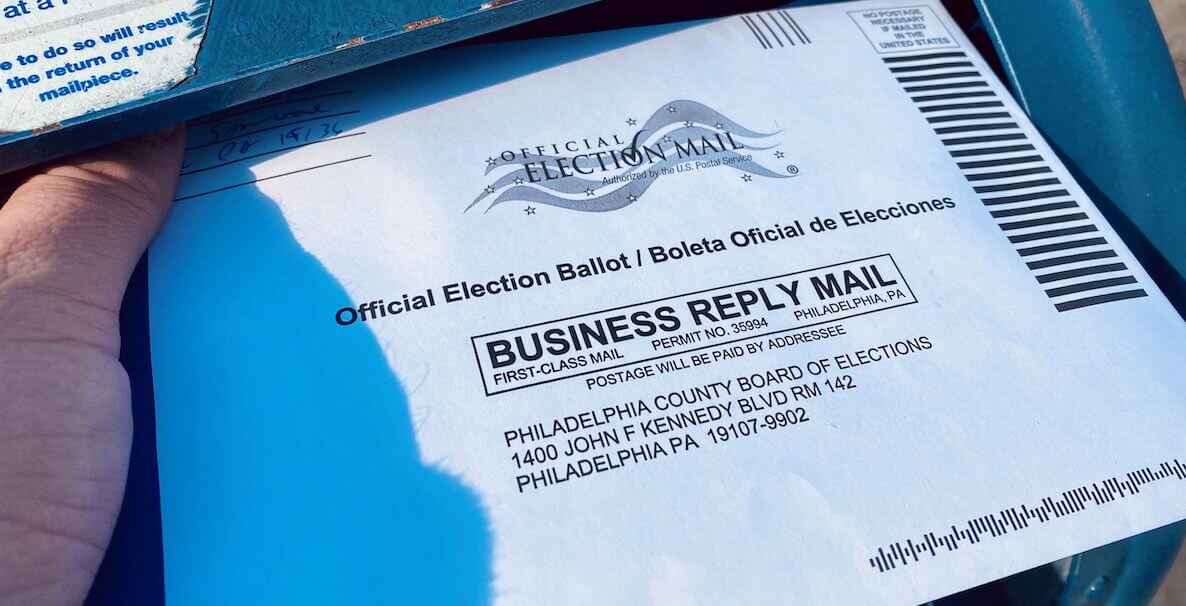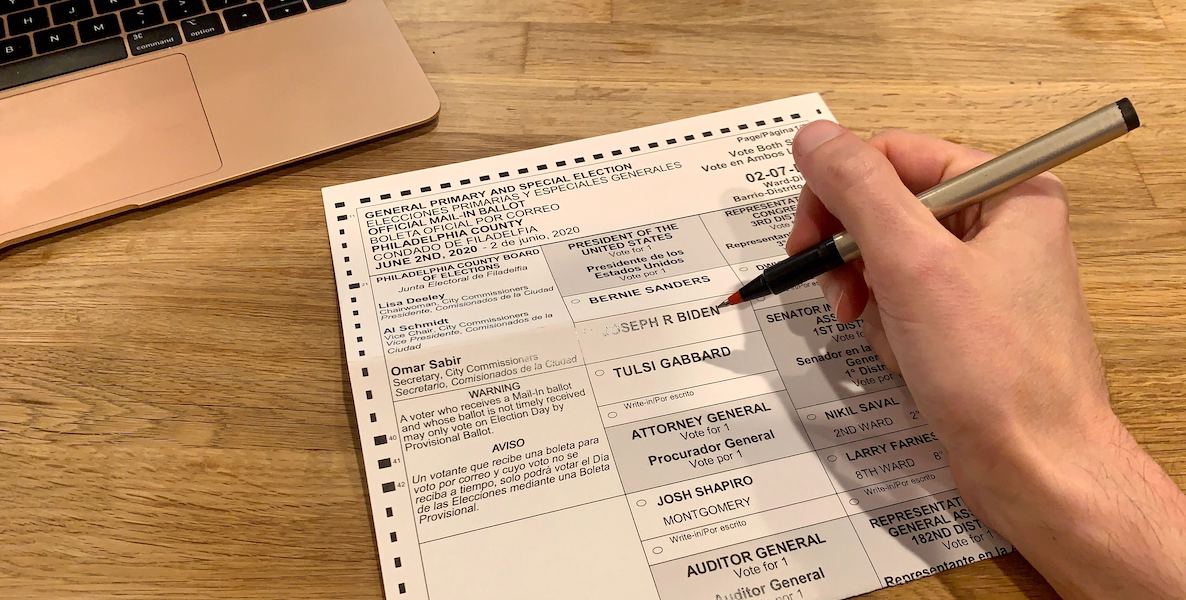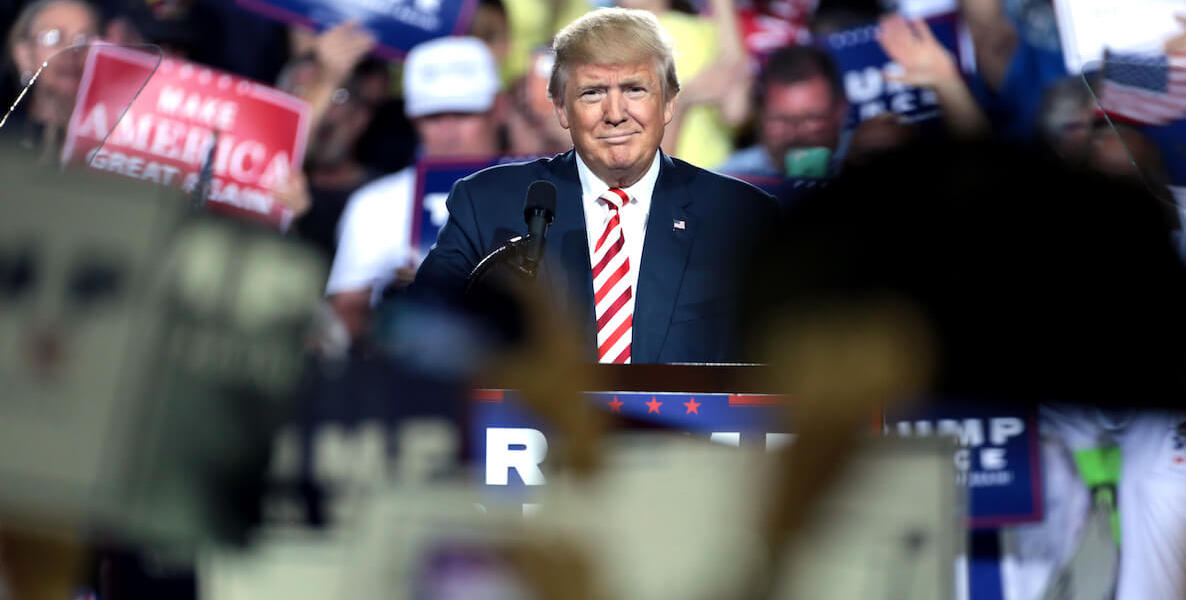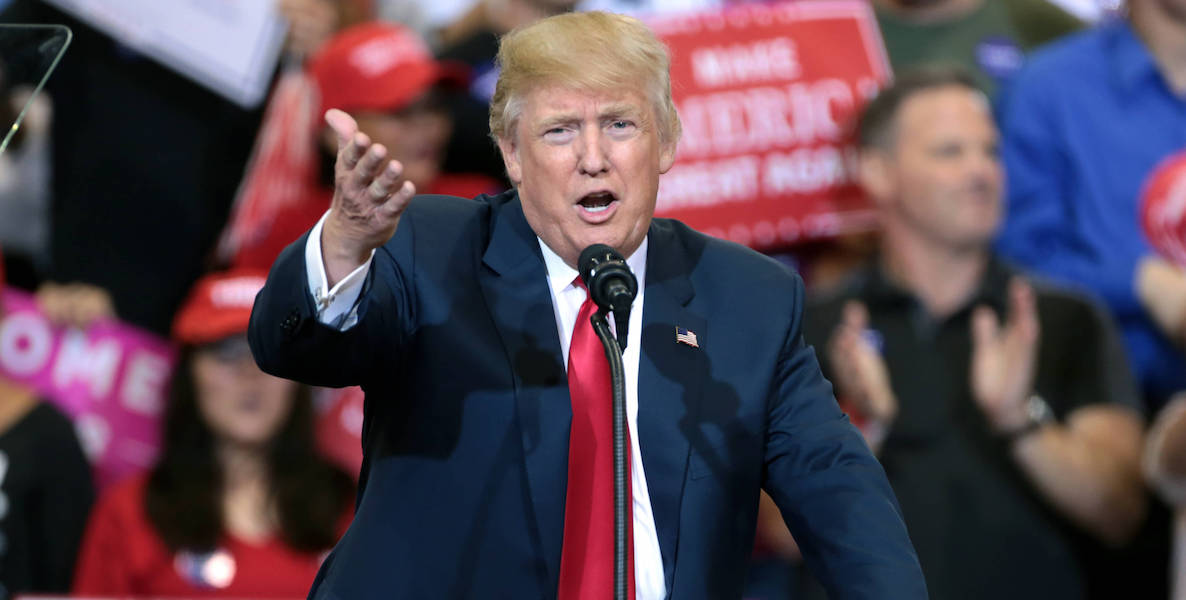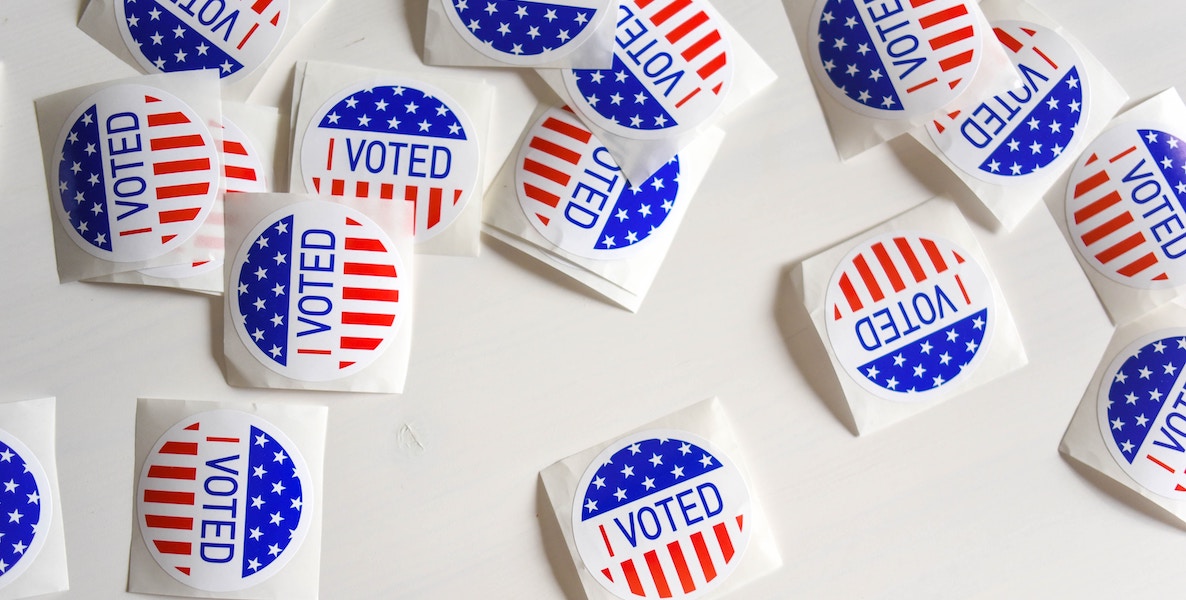Quick: What’s Donald Trump’s reelection strategy? Is there a platform he’s running on? A plan for taking on Covid-19? A vision for reopening the economy and getting America back to work?
Of course not—this is a presidency that seems to reject the very notion of problem-solving. It would be tempting, then, to conclude there is no strategy. But that would only reveal a lack of understanding of strong man politics. For it has become increasingly clear that Trump’s strategy, such as it is, is to create enough chaos and division to undermine Democracy itself, to sow so much doubt about the integrity of the election that the result is rendered suspect. Which gets us to election night’s Doomsday scenario, a drama that very well could feature Philadelphia in a starring role.
It’s no accident that the ![]() president has been deriding mail-in voting as corrupt and already holding out the specter of delaying the election. (Something he has no constitutional authority to do.) In an unprecedented development, it’s expected that roughly half of all votes cast will be by mail in this election. Ask yourself: Who will be voting in-person on Election Day?
president has been deriding mail-in voting as corrupt and already holding out the specter of delaying the election. (Something he has no constitutional authority to do.) In an unprecedented development, it’s expected that roughly half of all votes cast will be by mail in this election. Ask yourself: Who will be voting in-person on Election Day?
That’s right: Trump voters. His base will show up, (the hoax of) coronavirus, be damned. That means that, on election night, when the AP and news networks need to fill up air time by making projections, we may find ourselves in the position of seeing a building Trump landslide, especially in battleground states, a trend that will only be reversed once all the mail-in votes are tallied. Which could take…hours? Days? Weeks? Months? Or will it be years, as Trump has intimated, because of all the lawsuits he’ll rain down on county election boards?
He’s now back home in the suburbs of Philly, wearing an ankle-bracelet, and writing a tome that is part-memoir of his penal system experience and, yes, part-diet book. Smukler may be newly spiritual, but he remains one of our deepest Machiavellian thinkers when it comes to politics.
Imagine this. It’s 11pm on election night. Based on by-definition incomplete exit polling, Trump is projected to be ahead in all battleground states. And we go to bed not knowing who has won, because half of all ballots still need to be counted—the vast majority of them from cities.
“Can’t you just hear him? He’s already telegraphed what he’ll be saying,” the longtime political consultant Ken Smukler said when I caught up with him this week to explore the doomsday scenario. “Why is it Trump counties can count their votes, but Biden counties can’t?”
![]() Last year, in a strange, high-profile case, Smukler—one of the nation’s more creative and colorful political minds—was convicted of violating federal election law, and went away to “a fat camp run by Tim Burton,” as he calls it, ultimately spending ten months at a minimum-security prison.
Last year, in a strange, high-profile case, Smukler—one of the nation’s more creative and colorful political minds—was convicted of violating federal election law, and went away to “a fat camp run by Tim Burton,” as he calls it, ultimately spending ten months at a minimum-security prison.
He’s now back home in the suburbs of Philly, wearing an ankle-bracelet, and writing a tome that is part-memoir of his penal system experience and part-diet book: He dropped about 100 pounds while he was away on his “Jailbird Diet,” which involves removing all junk from your life—food, TV, gossip, “woe is me” thinking—and, instead, losing yourself in long walks in the woods, classic literature, and 15-minute, low-calorie meals.
Smukler may be newly spiritual, but he remains one of our deepest Machiavellian thinkers when it comes to politics. So I called to find out if there was a cure to my doomsday scenario. What follows is an edited and condensed transcript of our conversation.

Larry Platt: So, before we get to it, how the hell are you?
Ken Smukler: I’m good. You know, being released during the pandemic meant that my time on the outside wouldn’t be that much different than my time on the inside. Now I get to spend time with my family and friends, but other than that, I spend my time walking a lot, reading the classics, listening to classical music, and writing. Which has given me a lot of time to think about your doomsday scenario.
LP: So I’m not just being nervous about a chaotic, disruptive Election Day?
KS: It’s a very real threat, particularly if County Board of Elections throughout the country don’t address how they’re going to release data on election night. You know, beginning in the late ’60s, through Edison Media Research, a consortium of media outlets used exit polling to project the winners of presidential elections on election night, often right after the polls close. There is a very real possibility that no legacy media, or non-legacy media, this time around will have the wherewithal to make a call when the polls close, or for some time after that. And the absence of any ability to quickly project winners and losers creates a void that invites mischief. We already see the president positioning himself to take advantage of that void.
LP: Will there even be exit polling this time around?
KS: That’s the question. Can you accurately exit poll if you know that in-person voting is only going to be a 50-percent snapshot of the electorate? If you do that, as you pointed out, you’re probably over-counting Trump voters and undercounting Joe Biden voters. The problem is, there’s no way to exit poll mail-in ballots. And what we’re facing is unprecedented. In the past, absentee voting has made up five percent of the electorate. This time, in Philadelphia, it’s expected to be upwards of 50 percent.
LP: If there is no exit polling, might we still get skewed vote reporting on election night?
KS: Yes, if, for the first time in the modern era, there are no projections made by exit polling, we’re still in danger. Because, if County Board of Elections just release the data from mail-in ballots as they open them, it will mean the counties that can open the mail the fastest will be the first to get their data out. That means that smaller counties, many of them rural and Trump-partisan, will be able to release their data before larger, municipal counties with projected high Biden performance and enormous amounts of mail-in ballots to process. In Pennsylvania in 2016, Trump took 84 percent of the 7,000 Fulton County votes cast, 69 percent of the 21,000 votes cast in Venango County, and 70 percent of the 48,000 votes cast in Lycoming County. In Philadelphia, we’re projected to have as many as 400,000 mail-in ballots to go through before releasing our data.
LP: So, let’s say there is some form of exit polling. Given that Trump’s base will ![]() turn out, that will likely skew toward him. And now you’re saying that the first mail-in returns will be from Trump-friendly counties throughout the country. So at some point after the polls close on election night, we could be getting information that looks like Trump is well on his way to reelection?
turn out, that will likely skew toward him. And now you’re saying that the first mail-in returns will be from Trump-friendly counties throughout the country. So at some point after the polls close on election night, we could be getting information that looks like Trump is well on his way to reelection?
KS: Exactly, especially in battleground states. What does Pennsylvania look like, without citywide projected results from Philly factored in? Michigan without Detroit? Ohio without Cleveland? Total votes in Pennsylvania may total 6 to 7 million. Of that, 700,000 to 800,000 will be from Philly—and 80 percent of those will be for Biden.
LP: So what will this look like on election night?
KS: We could have a scenario from 8pm until midnight or even way longer where, because we’re waiting for results from big urban counties, it looks like Trump is heading toward a landslide. You may think he’s heading for a double-digit win in Pennsylvania. And then when the results from cities start coming in—it may take hours, days or weeks—it allows Trump to say, “Wait a second—we were winning, and now we’re losing? How’d that happen?”
LP: And he will cry fraud, even though there’s no evidence that, to date, there has been mail-in fraud.
“We could have an election night scenario where, because we’re waiting for results from big urban counties, it looks like Trump is heading toward a landslide win,” Smukler says. “When results from cities start finally coming in, it allows Trump to say, ‘Wait a second—we were winning, and now we’re losing? How’d that happen?’”
KS: It is accurate to say there’s been no evidence to suggest that fraud has been involved in mail-in voting. Having said that, we’ve never seen the levels of mail-in voting in battleground states that we’re going to see in September, October and November. Does that upsurge lend itself to a greater opportunity for fraud? Of course it does. It would be intellectually dishonest to say fraud absolutely won’t happen. There are a number of potential failure points throughout the process, like the U.S. Postal System.
LP: Which Trump is also deriding …
KS: And if we’re banking on 100 percent accuracy of the U.S. Postal System, Trump is going to win that part of the debate. We have to temper our expectations. There will be a percentage of ballots that are lost. States out west, who have experience with universal mail-in voting, know this. Some will be lost, but good public policy means accepting that, because mail-in voting enfranchises more than it disenfranchises and, in a pandemic, it’s a matter of public safety. But the expectation that some ballots will be lost doesn’t mean there will be fraud. But it also doesn’t mean there won’t be fraud. Remember the spectacle of “hanging chads” in 2000? We went to all electronic voting over that, and it led to concerns we were creating weak points that hackers could take advantage of. Weak points always exist, but that doesn’t mean that fraud exists. But it does mean that fraud could exist.
LP: I’m still focused on the election night scenario of everyone thinking we’re witnessing a Trump landslide. What can be done about this?
KS: Big cities are not used to handling the large number of mail-in ballots in the numbers they’re about to be overwhelmed by. And it doesn’t look like county board of elections are about to get a large infusion of cash to technologize their way through this. That’s why my recommendation would be to see this as a problem of perception.
County board of elections should do what they’ve never done before, and release data in a strategic way that allows legacy media to sift through that data and use it to make projections. Usually, it’s a first in, first out system—as soon as they tabulate a Division’s combined in-person and mail-in vote totals, they release that data. Now boards of elections need to release data in a different way, a way that makes it possible to model the city or state’s overall performance.
LP: What does that mean on a practical level? What specifically should election boards do?
KS: Let’s take Philly. The city commissioners should identify buckets of precincts to report from first, so that, taken together, data teams can paint an overall portrait of the city. You say something like, Okay, we’re going to compile and release the results from 20 Divisions in South Philly, 20 in Southwest Philly, 20 in West Philly, 20 in Northwest Philly, 20 in the Northeast, 20 from the river wards, and 20 in center city and university city. This way, you’re releasing data that is geographically and demographically diverse enough that you can model the city and, thus, the state on election night.
LP: You’re talking about releasing data so it is, in effect, a scientific sample, right?
KS: That’s right—it’s disaggregated enough by geography and demography so that data teams and media outlets can predict citywide performance and turnout in real time, just like on other election nights. When you see CNN’s John King in front of his big board on election night, that’s what he’s doing. Behind the scenes, his data team is going through small sets of exit poll data, combining that with incomplete county data released by local election boards, so that his network, Fox, the AP, and MSNBC can all tell you what’s going on in real time.
![]() They can do this because their exit polls are delivered from modeled precincts such that even incomplete county data coming from some divisions in big cities like Philadelphia can begin to give them a clearer picture of citywide totals within minutes of the polls closing. When exit polling becomes incomplete because of significant mail-in voting, the only way to project citywide totals and performance is for the city commissioners to release a representative sample of data that allows analytics teams to model the vote citywide.
They can do this because their exit polls are delivered from modeled precincts such that even incomplete county data coming from some divisions in big cities like Philadelphia can begin to give them a clearer picture of citywide totals within minutes of the polls closing. When exit polling becomes incomplete because of significant mail-in voting, the only way to project citywide totals and performance is for the city commissioners to release a representative sample of data that allows analytics teams to model the vote citywide.
The city commissioners are not going to even begin opening mail-in ballots until after the polls close. If they are not strategically opening mail-in ballots to deliver strategically significant models for media data teams to analyze, then we are left with an election night in which smaller, high-Trump performance counties are all in before we even get enough divisions released in Philadelphia to begin projecting citywide outcomes.
LP: Are Boards of Elections going to be able to do what you’re proposing? You’re asking bureaucrats to change the way they’ve always done something. Is there a cultural impediment to reforms such as this?
KS: Oh, there are all sorts of cultural and political roadblocks. But here’s what I say to election boards: Just do what’s in your own self-interest. If you strategically figure out how to release data on election night, you won’t have everyone beating down your door all night. It will be less of a shit show.
LP: And you just may be saving democracy in the process.
KS: Yes, this could keep us from your doomsday scenario, where, at midnight, Trump has a double-digit lead in Pennsylvania but the numbers from Philly are still out and he’s calling Philly a “black hole” and talking about fraud. You avoid that by strategically releasing data in real time, and that means you’ve made people more confident about the electoral system in the face of Trump’s accusations, which we already know are coming.
LP: Ken, thanks for taking the time. I’m struck by the irony of your passion for this topic. A guy who cares so much about the vote, but who is enjoined from voting.
KS: [Laughs] Actually, Pennsylvania is one of 16 states that allows felons to vote once their incarceration ends. So I made it by 39 days.
LP: In that case, see you at the polls.
KS: Thanks.
Header photo by Gage Skidmore / Flickr


